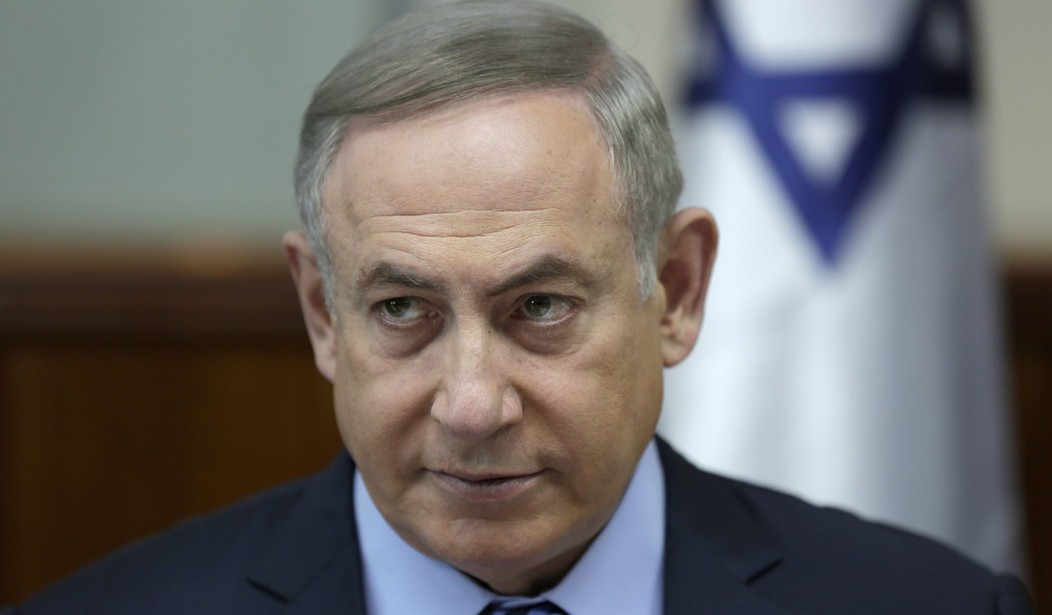The ongoing travails of Israel’s Prime Minister Bibi Netanyahu have been buried in the international news (though not unreported here). He is the subject of three concurrent investigations involving fiscal shenanigans.
There is the matter of the billion-dollar submarine deal Netanyahu pushed through, apparently against protests from Israel’s defense establishment, with ThyssenKrupp, a German firm. The firm is represented in Israel by Bibi’s personal lawyer, and also is partially owned by the Iranian government. There is the matter of hundreds of thousands of sheqalim in gifts which have been showered on him by various wealthy individuals, which he dismisses as “mere trifles.” And there is the matter of a possible deal with an Israeli newspaper magnate, Arnon “Noni” Mozes, to pass a law suppressing Mozes’ main competitor in exchange for favorable coverage in his own paper — the most widely read and distributed Hebrew-language daily in the country, Yedi’oth Acharonoth.
The latter two cases may be coming to a head.
Last week, Israel’s Walla! News service reported that Israeli billionaire filmmaker Arnon Milchan, who resides in Los Angeles, allegedly testified that he had indeed given the Netanyahus gifts of champagne, cigars, and jewelry valued at tens of thousands of sheqalim (one sheqel is currently worth about 27 U.S. cents). Subsequently, the Jerusalem Post confirmed the story. This came on the heels of earlier testimony from Australian billionaire James Packer, who lavished gifts on Netanyahu’s son Ya’ir, in hopes of influencing his father.
Though Netanyahu’s lawyer continues to insist that there were no surprises and the prime minister has “answered all the questions asked and left the investigation completely relaxed,” Israel’s Channel 2 News has reported that the police are close to recommending an indictment.
At least some of the parties in the current governing coalition, Shas and Yahaduth haTorah, are sufficiently nervous at the prospect that they are pushing Netanyahu to keep all of the promises made in the coalitionary agreement immediately. They fear a coalition collapse in the event of Netanyahu’s possibly having to step down to fight an indictment, as well as the daunting likelihood that the Likud party, divided and disgraced by the downfall of its long-time leader, would go the way of the old Qadima party. Its prime minister, Ehud Olmert, was indicted and convicted of corruption in office, ceding the way to the upstart Yesh Atid party, whose leader Ya’ir Lapid is far more hostile to the religious sector.
A recent opinion poll in Israel suggests that Netanyahu is still the most popular choice as prime minister, with 39% approval, but that his nearest rival is Lapid, with 19% approval. This is despite Lapid’s less than stellar performance as finance minister in the last Likud-led government, the first in which Yesh Atid was a player.
Other than the case of Olmert, the only other Israeli prime minister to run afoul of political ethics in a consequential fashion was the late Yitzchak Rabin. His Labor government fell to Likud in 1976 amidst multiple financial scandals in which the housing minister committed suicide over an investigation into allocation of luxury apartments. The head of the Histadrut, Israel’s institutitonal labor union, was caught with his hand in the till, and Rabin himself ran afoul of currency regulations then in effect prohibiting Israelis from holding foreign bank accounts.
Now comes a report that the press-influence case is heating up, and that Israeli police have contacted U.S. authorities about possibly questioning Sheldon Adelson in the matter. Adelson is a long-time Netanyahu confidant and the owner of Yisra’el Hayom, the major competitor to Mozes’ paper. The case centers on the attempt to pass a controversial law in 2014 which would have limited the distribution of papers offered at no charge. Yisrael Hayom is such a paper, being supported purely on the advertising revenue.
Israel’s national police commissioner, Inspector General Roni Alsheich, has stated that the police are close to wrapping up the investigation. “We will end it soon, we are in the final stages,” he told the press at a ceremony to swear in the new National Fire and Rescue Service commissioner. When the investigation is concluded, the police will submit their findings, together with a recommendation either to indict or close the case, to Israeli Attorney General Amichai Mandelblit, who will make the final decision.
If Netanyahu is indicted, the future looks very murky.









Join the conversation as a VIP Member